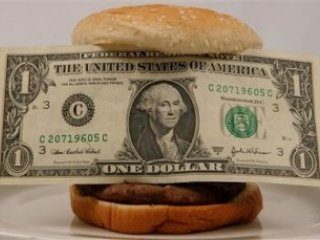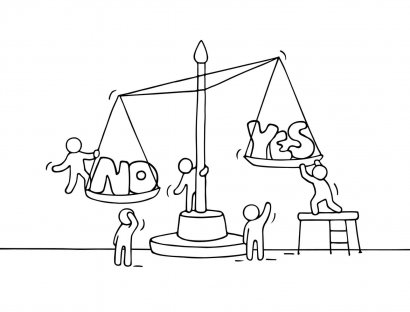 Capitalism is the name by which the economic regime that is based on the predominance of capital is called, as a fundamental element of production and responsible for the creation of wealth, and in which the state has little participation. In capitalism, the production of capital in the form of money or wealth is the main objective.
Capitalism is the name by which the economic regime that is based on the predominance of capital is called, as a fundamental element of production and responsible for the creation of wealth, and in which the state has little participation. In capitalism, the production of capital in the form of money or wealth is the main objective.
Private property is the owner of the means of production. Little state participation
In capitalism, the means of production and distribution are privately owned and have a specific profit purpose, meanwhile, the decision of supply, demand, prices, distribution and investments are not defined by the government in power but rather it is the market itself that makes this definition.
Profits are only of the owners of the means of production
The profits, on the other hand, are distributed among the owners of the means of production and part of them are invested in the company and in the payment of wages to the workers. Of course, the workers do not have any interference in the profits that are obtained, this being one of the great flags that communism historically raised in its face-to-face fight against capitalism.
We must say that since the 18th century, capitalism has imposed itself as a socio-economic regime in the entire world.
The actors involved in its operation according to
The operation of capitalism demands the presence of several actors to be able to function accordingly, among them we must point out the social and technological means that are essential to guarantee consumption and to treasure capital; the employer or owner of the means of production; employees who in exchange for a salary sell their work to the owners; and consumers, who are those who consume what is produced to satisfy needs or needs. This oiled mechanism is what allows the maintenance of this system and the continuation of the production of wealth.
Social inequality, one of the main criticisms against capitalism
Now, we must say that just as it has many followers, capitalism has many detractors, especially because they argue that capitalism is the system of economic laws that governs the world today and that it is based on the existence of certain elements that allow access to important earnings for a part of the population, but which add deep levels of poverty to most of it.
Origin and history
The birth or initial development of capitalism can be historically located at the moment in which the feudal states began to fall and European cities (mainly the Italian ones) began to stimulate the use of trade as the main economic activity (from the 15th centuries and XVI).
This situation allowed the emergence of a new social group, the bourgeoisie (or those who lived in the boroughs or cities), which began to base their power on their own work and on the profit margins that it left them, instead of on divine or ancestrally established rights as used to be the case with nobility or royalty. Historians and economists divide the history of capitalism into three great periods or stages: that of mercantile capitalism (15th to 18th centuries), that of industrial capitalism (18th and 19th centuries) and that of finance capitalism (20th and 21st centuries).
System that privileges the market and limits state interference
Capitalism is established on the existence of a system of markets and capitals that limits interference to states and that, according to liberal theories, must be managed by itself, that is, by the flow of capital itself between a region of the world. planet and another. Although this notion of a free market is related to the freedom to negotiate and generate wealth, it also implies a rather weak and highly chaotic regulatory framework in crisis situations (which are periodic and, in general, very strong).
System benefits and more critical
In the social aspect, capitalism has been understood by its most faithful defenders as the first socioeconomic system that gives full freedom to the individual to succeed according to their possibilities and not to ancestrally established privileges. However, those who criticize this system of private property, exaggerated consumption and community property, maintain that capitalism is just another form of exploitation (this time veiled), since it implies that for some to obtain profits in abundance, others must be exploited, dominated and oppressed in all aspects of their lives.
Economic inequality and environmental damage
Today, the capitalist system is the one that really moves most of the world's activities and its negative effects are visible not only on a social level, but also on a cultural and ecological level.
The economic inequality that exists in many societies today is always attributed to capitalism and its effects
Now, although it is a fact that in many cases can have an impact, there are also direct responsibilities of the state, due to its inaction or bad policies in the generation of this social inequality.
But not only in the social plane are tremendous catastrophes attributed to it, capitalism is also attributed a great responsibility in terms of environmental damage since in this desire to grow and produce constantly it is impossible that at some point the resources will be exhausted. resources that cannot be renewed.









